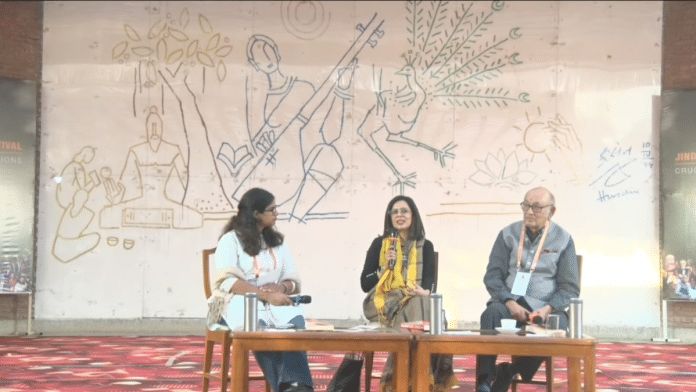Hisar: The idea of independent, fearless journalism has always fascinated readers. But every such pursuit demands uncommon courage, conviction, and a willingness to stand alone when it matters most. Pratap was one such newspaper, holding its dissenting soul steady through Partition, militancy, and the Emergency, refusing to surrender its integrity even in the face of fear, chaos, and overwhelming pressure.
Drawing on rigorously sourced archives and deeply personal memory, Jyotsna Mohan and her father, Chander Mohan, return to a Punjab whose wounds ran far deeper than Operation Blue Star. In tracing Pratap’s journey, they revive the voices of ordinary, innocent people who were erased by the dominant narratives of their time.
“Let us accept that journalism has fallen as a profession in this country. Today, when the State asks the media to bend, it crawls. The institution of the press has been captured by corporate power, and corporations and the government now operate in mutual interest—at the cost of media independence,” Chander Mohan said at a panel discussion led by Sociologist Reva Rudra at the Jindal Literature Festival at the Vidya Devi Jindal School in Hisar Sunday.
The newspaper began its journey in Lahore in 1919, just two weeks before the Jallianwala Bagh massacre, originally as an Urdu publication.
Reflecting on the decline of Urdu print culture in India, Chander said, “The decline of Urdu is a great cultural loss for the country. It was never a foreign language; it emerged from the soil of regions like Meerut. But over time, it became unfairly tied to one community, and that association has contributed to its fading presence.”
Adding to this, Jyotsna observed, “It is painfully clear that Urdu has been sectionalised into a language belonging to one religion and, worse, viewed as somehow anti-national. This reveals the kind of thinking that has taken root. It has become part of a new cultural narrative, and, sadly, Urdu has become collateral damage in that process.”
Also Read: Women of suspense: The female crime writers reimagining power and vulnerability
The Emergency
During the Emergency, when Indira Gandhi suspended democratic freedoms, the government unleashed an unprecedented crackdown on the press. Power supply to newspaper offices was cut without warning, and censorship became pervasive and intrusive. Arbitrary directives, including orally, flowed from multiple government departments, leaving newsrooms disoriented and stripped of independence.
“Pratap simply refused to play along with censorship. During the Emergency, the editorial columns that should’ve carried opinions were left completely blank rather than printed with government-approved lines. My grandfather, Virendra, who was the editor then, even stopped writing because he didn’t want a censor approving his words. Instead, he found a quiet way around it—he began writing about past events, using history to speak when the present was being silenced,” Jyotsna recalled.
What if Pratap existed today
While responding to a hypothetical question from an audience member about Pratap reopening in 2025—and whether such defiant journalism could survive today—Jyotsna replied without hesitation, “It would have been shut down!”
Reflecting on both the freedom struggle and the present political climate, Mohan said, “The leadership during the freedom movement was such that freedom fighters had no money, yet they were willing to lay down their lives for the nation. That is what a leader should be.”
“In today’s time, it is almost impossible to imagine. This marks the stark difference between the idealistic convictions of then and now. This shift is visible across all our institutions, whether in government or in journalism.”
ThePrint is the official media partner for the Jindal Literature Festival.
(Edited by Ajeet Tiwari)






